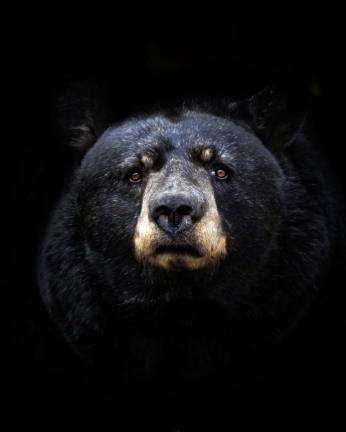Black bear euthanized after attack on man in garage
West Milford. State officials say there have been 200 bear sightings around New Jersey so far this year, about a 90 percent increase from the same period last year, and double the number of home entries by bears. Blame the increase in sightings on people forced to stay home because of COVID-19.

(AP) A black bear has been euthanized after an attack on an 82-year-old man in the garage of his home on Hearthstone Drive in West Milford last month, authorities said.
Fish and wildlife workers trapped and killed the suspected problem bear on Tuesday in West Milford, the New Jersey Department of Environmental Protection said in a statement on July 31.
State officials said the bear, which had entered multiple homes in the past week, is believed to have been the same one responsible for the attack on the night of July 24.
West Milford Police said the man left the garage open while walking his dog, and the bear was inside behind the refrigerator door when he returned. When the man attempted to close the refrigerator door, the bear took several swipes at the man, causing a laceration to the face and right arm and smaller scrapes to the chest, West Milford Police reported. Police said the man needed more than 30 stitches to his face.
Police were not immediately contacted as the man was transported to a hospital for medical attention by a family member.
“It must have been a young bear,” West Milford Police Chief James DeVore told NorthJersey.com, “because it only stood about five feet while on its hinds.”
Black bear attacks on humans are rare, but can be deadly. In 2014, 22-year-old Rutgers University student Darsh Patel was killed by a black bear while hiking with friends in the Apshawa Preserve, which is also in West Milford.
The ripple effect of COVID-19
State officials say there have been 200 bear sightings around New Jersey so far this year, about a 90 percent increase from the same period last year. There have been at least nine home entries by bears from Jan. 1 to July 21, which doesn’t include the most recent one, compared to four during the same period last year.
Officials said earlier this year that the increase in bear sightings may be due to the fact that more people are home because of the coronavirus.
“This is the time of year when bears are looking for habitat, particularly younger males that have left their mothers,’’ department spokesman Larry Hajna said at the start of July, NJ.com reported. “Reports may have increased due to more people being at home seeing bears as they disperse into habitats.’’
The increase in sightings and incidents has been cited by hunting advocates such as the New Jersey Outdoor Alliance in calling for an expansion of the annual bear hunting season. Gov. Phil Murphy ran for office vowing to end the hunt as animal rights activists and some environmental groups have advocated, but such action requires approval by the New Jersey Fish and Game Council. The governor banned bear hunting on state lands in 2018.
Reduce the risk
To reduce the risk of bear encounters, state environmental officials urge residents to secure trash and eliminate obvious sources of food, such as pet food, easy-to-reach bird feeders, or food residue in barbecue grills, and to wash trash containers frequently with a disinfectant solution to remove odors.
Anyone encountering a bear should remain calm, avoid direct eye contact, make the bear aware of their presence by making noise and speaking assertively and make sure the bear has an escape route, officials said.